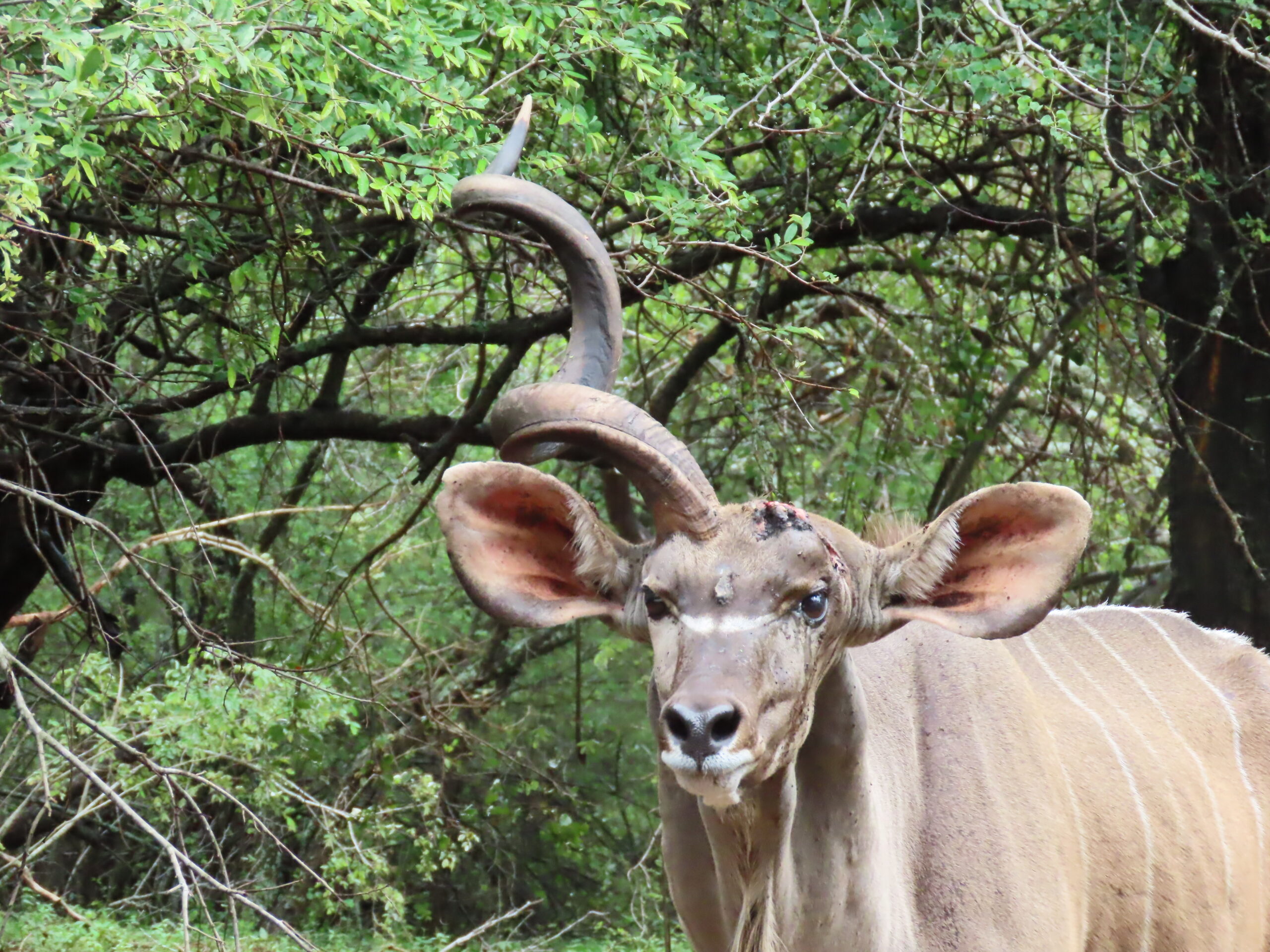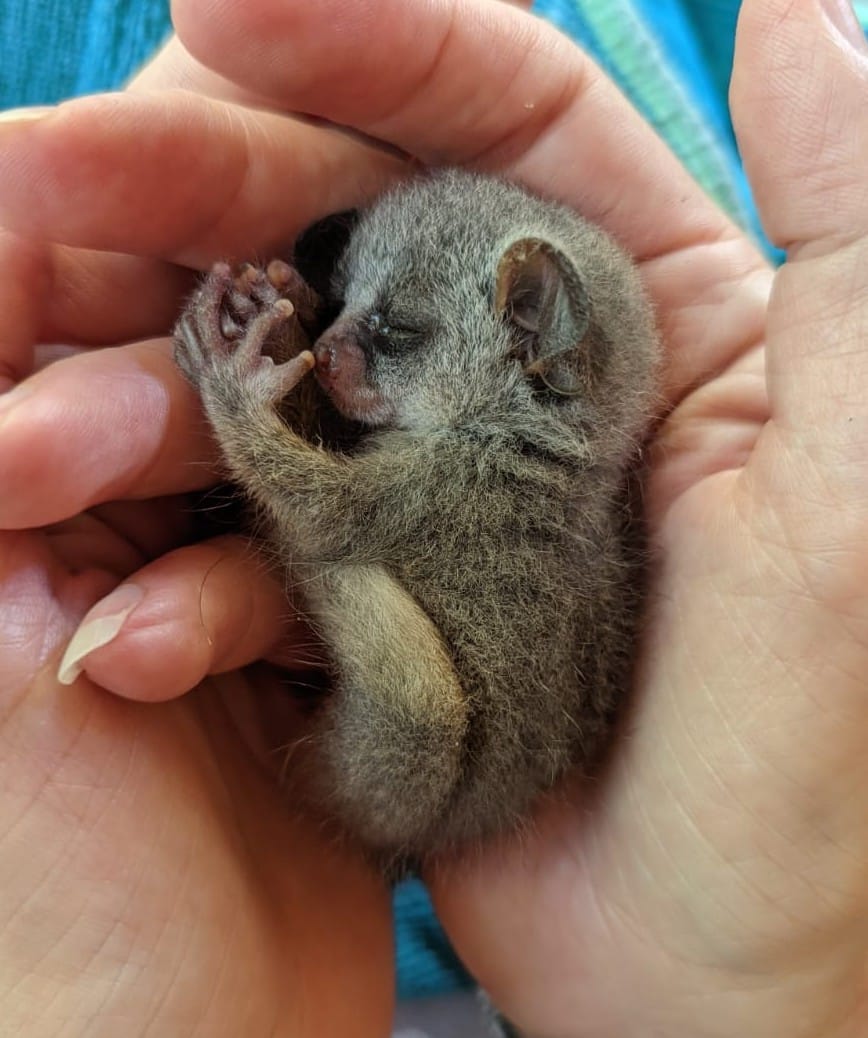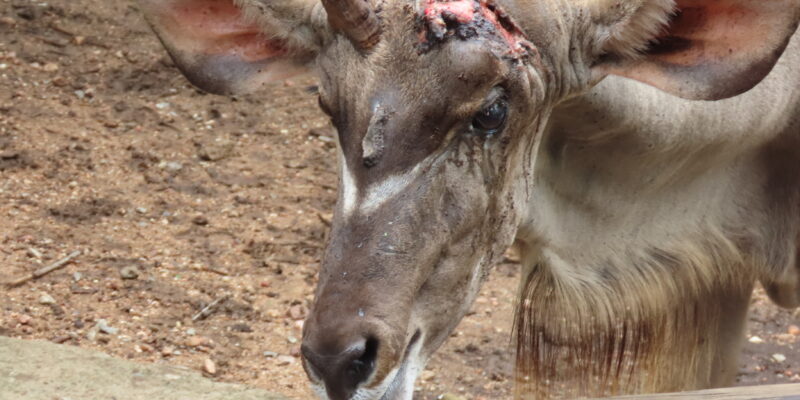Roads have been closed in sections of the Kruger National Park due to heavy rain.
The rain stops for an hour, drizzles for another hour, and then comes down with an unspeakable force. It’s expected to continue until Tuesday. There continue to be more and more warnings in the Marloth Park Facebook groups about flooding on certain roads, vehicles getting stuck, and road closings. A lot could happen in the next four days.

We’re considering heading out to the little market for a few items as soon as the rain lets up. The videos and photos online are astounding, and as much as we’d like to go out and take some of our own, the little rental car, a lightweight KWID, would surely result in our getting stuck if we attempted to travel on any of the dirt roads. Neither of us cares to get soaked.
I just touched base with David, and he said it should be OK for us to get there. By going out soon, we can determine if it will be safe and sensible to go to Jabula tonight for dinner. If Olifant Road, the paved main road in Marloth Park, is passable, we will go. It’s about a 10-minute drive from here.
We’ve been surprised that many animals have stopped by during the storm. This morning there were four bushbucks and one duiker in the garden. We tossed pellets to them, but if they don’t eat them right away, they turn into mush from the rain, and they don’t eat the mush.

We hadn’t seen Norman, Nina, and the baby for a few days, but they were here for a few hours yesterday afternoon when the rain let up for a while. It was good to see them again. We had more animals in the garden than we’d seen before the Christmas holiday. It was great to see them all together.
Even the mongooses stopped by a few times in the past two days, and we couldn’t cut up paloney fast enough for them. It was fun to see all their babies, already indoctrinated into the frenzy of eating paloney, cut into bite-sized pieces. They also recognize our clicking sounds that attract them to the garden. When a few show up, we make the clicking sounds, and they all come running from everywhere within earshot. It’s quite a sight to see.
Today’s photos of the injured kudu broke our hearts. We fed him apples, carrots, and pellets. He was looking thin. An injury as severe as losing a horn can cause significant disability and even death while the animal tries to recover. Nothing can be done other than to wait and see how he does.

Most of the wildlife is sturdy with robust immune systems and often recovers without infections or further harm to their health and well-being. We hope this will be the case with the now-named “Torn Horn” (a mouthful to say). We hope he’ll return to see us again so we can check his progress.
The sun is peeking out right now as it continues to rain. There’s an expression in the Afrikaans language, taught to us by our old friend Okee Dokey, frequently used when describing sunshine when it’s raining. It’s stated as follows:
Jakkals trou met wolf see vrou…which translates to “The fox married the wolf’s wife.” Go figure.
Happy day!
Photo from one year ago today, February 10, 2022:















